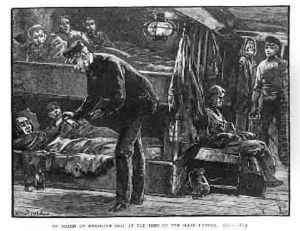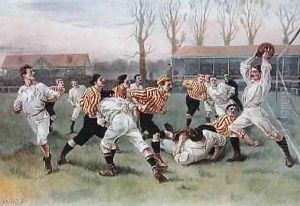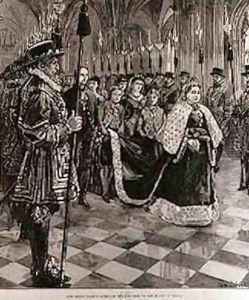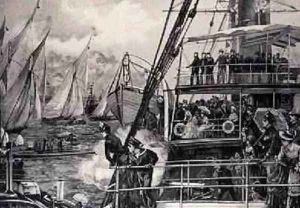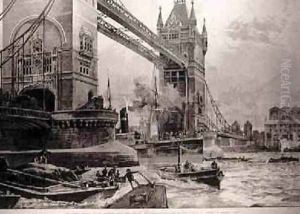Overend, William Heysham Paintings
William Heysham Overend was an English artist known for his landscape and marine paintings, born in 1851 in Guiseley, Yorkshire. Overend's early life in the scenic countryside of Yorkshire played a significant role in shaping his artistic interests and pursuits. He was deeply inspired by the natural beauty surrounding him, which is evident in the meticulous detail and vibrant atmospheres of his landscape works.
After receiving his initial education locally, Overend pursued formal art education, which was a common path for artists in the 19th century seeking to refine their skills and gain exposure. Although specific details about his education are scarce, it is known that Overend was part of the vibrant British art scene of the late 19th century, a period marked by a rich diversity of artistic styles and movements. He was contemporaneous with the likes of the Pre-Raphaelite Brotherhood and the Impressionists, though his work remained distinctively rooted in the traditions of landscape and marine painting.
Throughout his career, Overend exhibited his work at various prestigious venues, including the Royal Academy and the Royal Society of British Artists, gaining recognition and acclaim for his ability to capture the ephemeral qualities of light and atmosphere. His paintings often depicted scenes from Yorkshire as well as coastal and marine subjects, reflecting his lifelong fascination with the sea and the rugged British coastline.
William Heysham Overend's contribution to British art, particularly in the realm of landscape and marine painting, is noteworthy. Despite his relatively short life—he died in 1898 at the age of 47—his work left a lasting impression on the art world. Today, his paintings can be found in collections and galleries across the UK, serving as a testament to his skill and artistic vision. Overend's legacy is that of an artist who passionately captured the essence of the British landscape and seascape, contributing to the rich tapestry of 19th-century British art.
